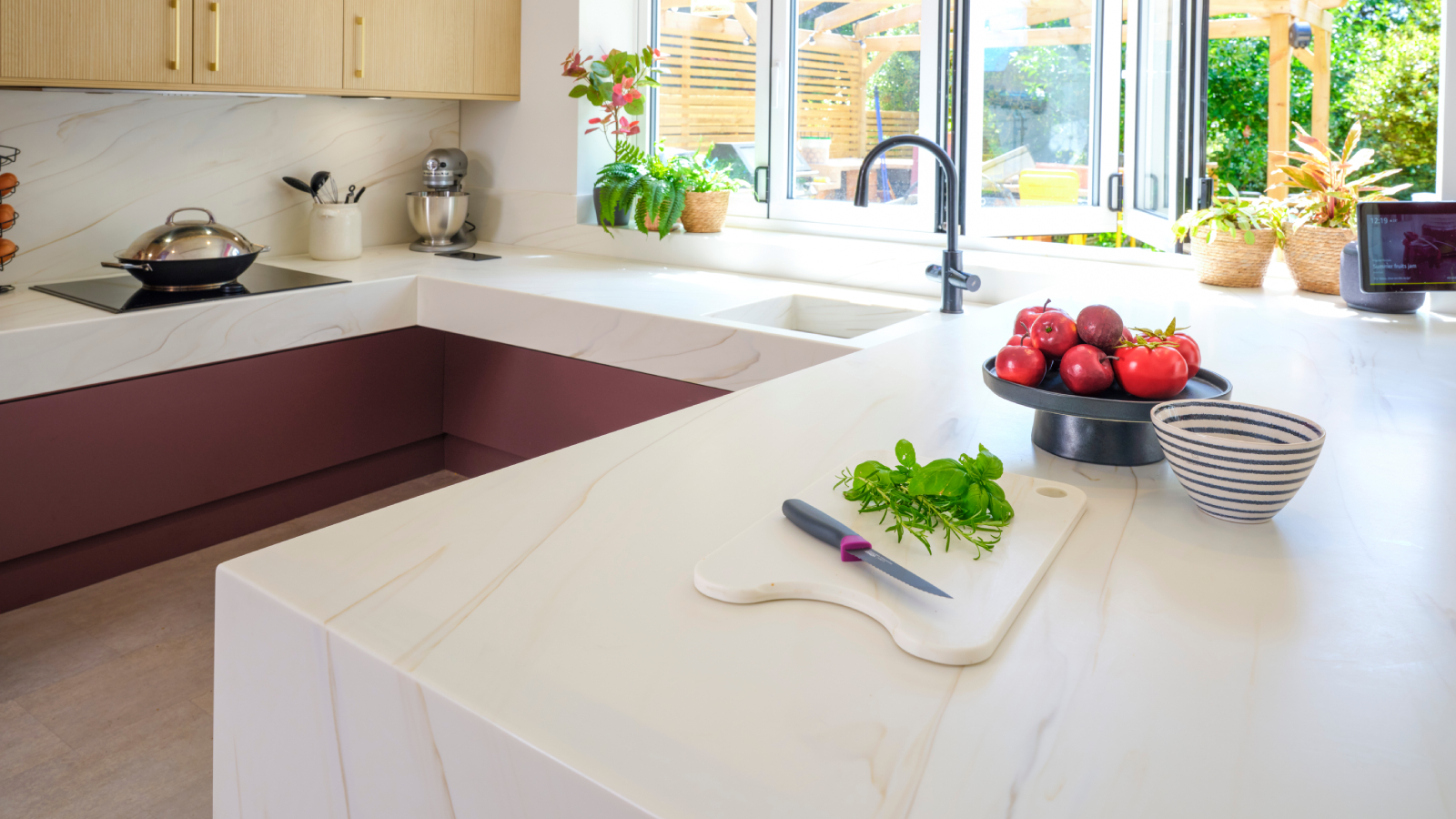Corian worktops look great, but aren't without their disadvantages – but are they enough to put you off?
Kitchen experts run through some of the potential issues with Corian worktops, to help you decide if it's the right choice for you
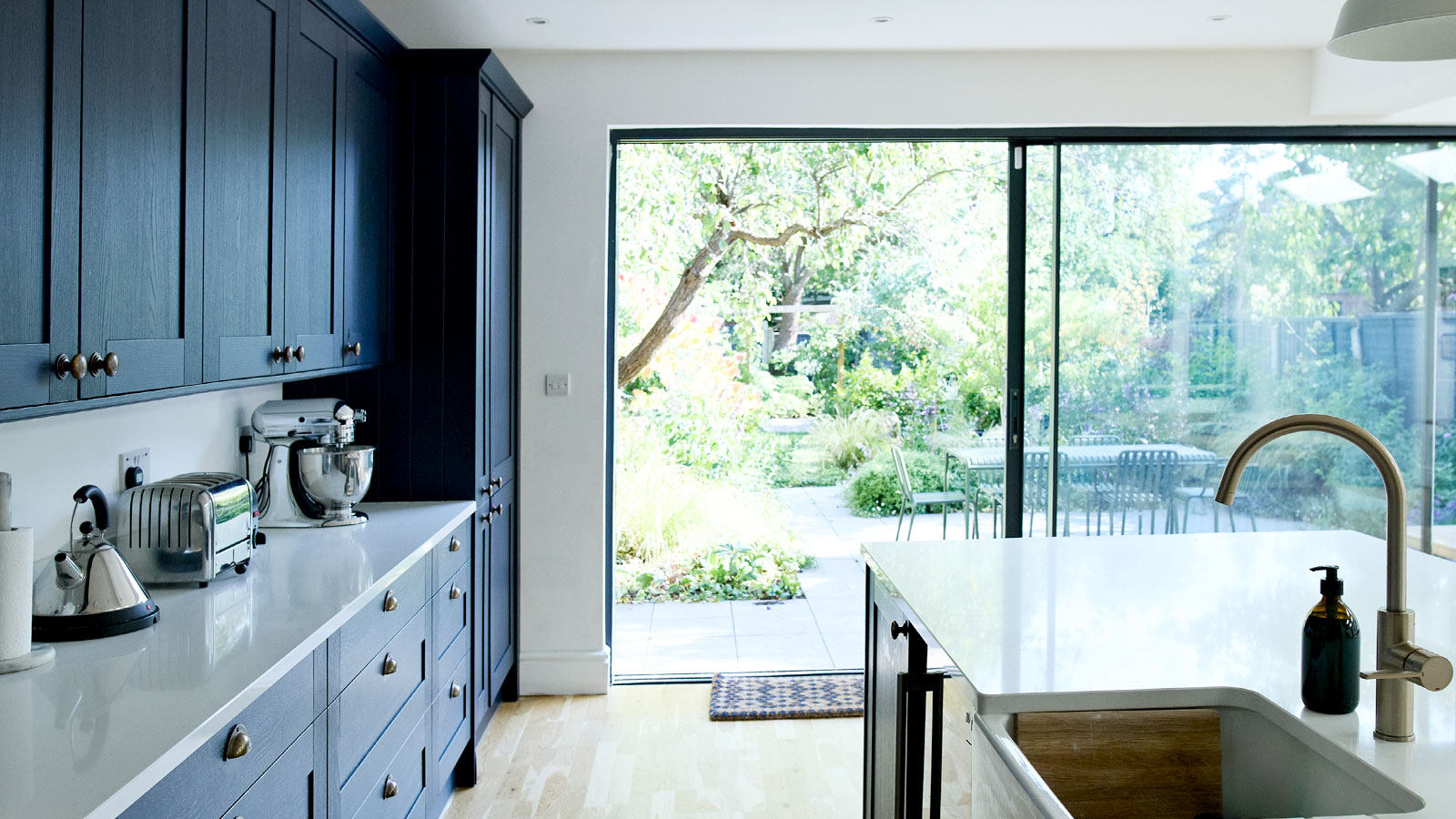
Bring your dream home to life with expert advice, how to guides and design inspiration. Sign up for our newsletter and get two free tickets to a Homebuilding & Renovating Show near you.
You are now subscribed
Your newsletter sign-up was successful
Corian is just one of many options available to you when choosing your kitchen worktops and it's important to understand its pros and cons. While it's not as expensive as some products, there are some disadvantages to Corian that might make it less suitable for your home.
While it comes in a wide range of styles, colours and finishes, the main issue with Corian for some people is its durability. You may well have heard mentions of it scratching or marking easily, but how true are the claims, and is it bad enough to make it impractical for your kitchen?
We asked the experts for the lowdown on the disadvantages of Corian and here's what they said.
Why is Corian considered to have disadvantages over other worktops?
Corian is a brand name that is typically used to refer to solid surface worktops that contain polymer and natural minerals, and while Corian worktops undoubtedly have some positives – its price being one of them – there are some downsides that can make them less appealing to some homeowners.
So what are the downsides, and how much will they change your view on whether you should include it in your kitchen ideas or not?
1. Corian is more heat sensitive than other materials
Unlike other kitchen worktop materials, Corian is heat-resistant rather than heatproof, explains Steve Larkin, CEO & co-founder of Kitchen Door Hub. “Although Corian is heat-resistant, direct exposure to hot pots and pans can damage the surface,” he warns.
This means they are more prone to marking from heat, although they are considered non-porous so will absorb food stains less easily.
"Corian worktops should not come into direct contact with hot pans or baking trays," continues Steve, "because prolonged, direct heat will discolour or burn the worktop surface, so you should always use pot holders or stands.”
Bring your dream home to life with expert advice, how to guides and design inspiration. Sign up for our newsletter and get two free tickets to a Homebuilding & Renovating Show near you.
“Around hobs and ovens, thoughtful detailing helps," adds Blanca Sanchez, director at Halo Design Interiors, "and when Corian is being used, I recommend specifying heat shields above dishwashers or warming drawers to deflect rising heat and steam.”
2. Corian is prone to scratches
While Corian is durable and repairable, it is nonetheless prone to scratching, shares Steve Larkins. “Corian can be prone to scratching, especially in busy parts of the kitchen, and darker-coloured worktops will not hide this damage as well as light-coloured areas," he adds.
This is quite different to granite for example, which is solid, heat resistant and difficult to scratch. The flipdside? Granite comes with a heftier price tag. Take a look at our corian vs granite guide to how they both perform in more detail.
3. Corian can dull compared to other surfaces
One final disadvantage of Corian is that it might not look as new for as long, in comparison to other types of kitchen worktops.
“Over time, light-coloured Corian can dull slightly," confirms Paul Dore MD of County Stone Ltd, "which can leave homeowners feeling frustrated.”
Try these alternative worktops for your kitchen makeover
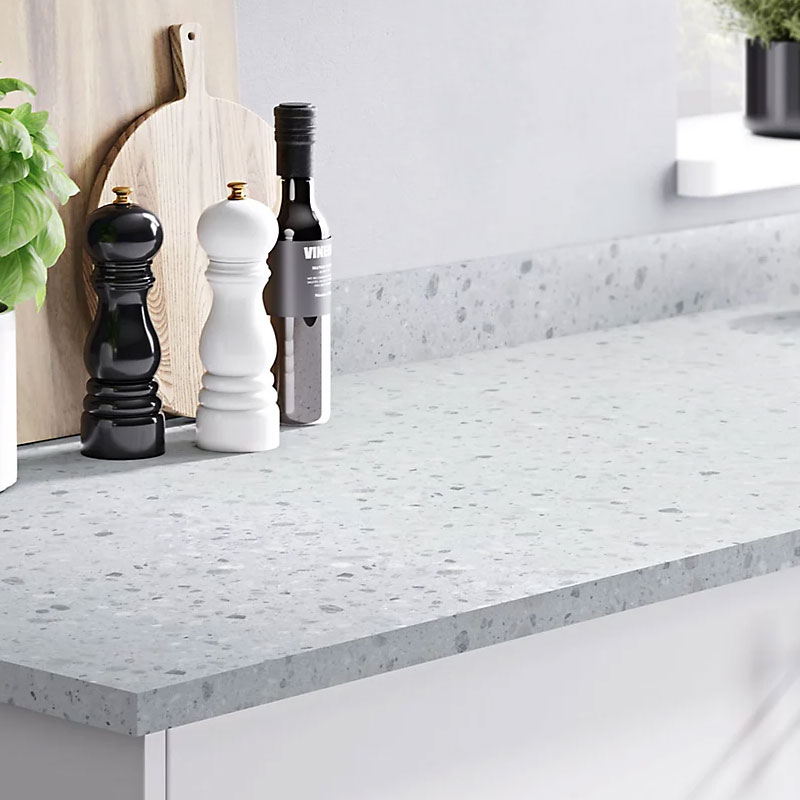
A budget 22mm thick Algiata laminate worktop with a terrazzo effect in matt grey. Scratch resistant and easy to clean.
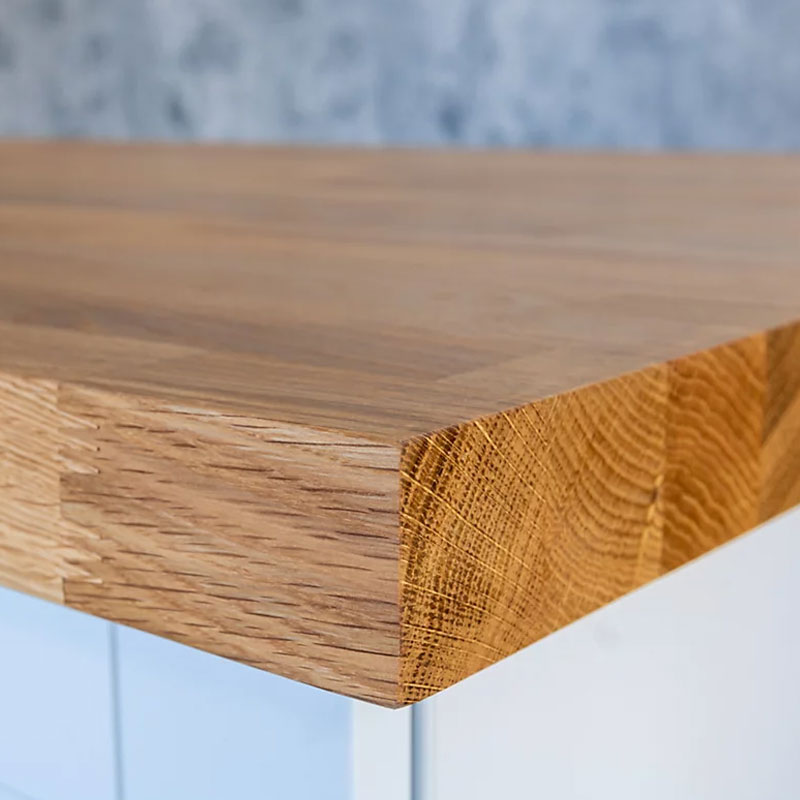
A solid oak worktop which is hand-crafted from sustainably sourced European oak. Pre-sanded ready to add your own finish.
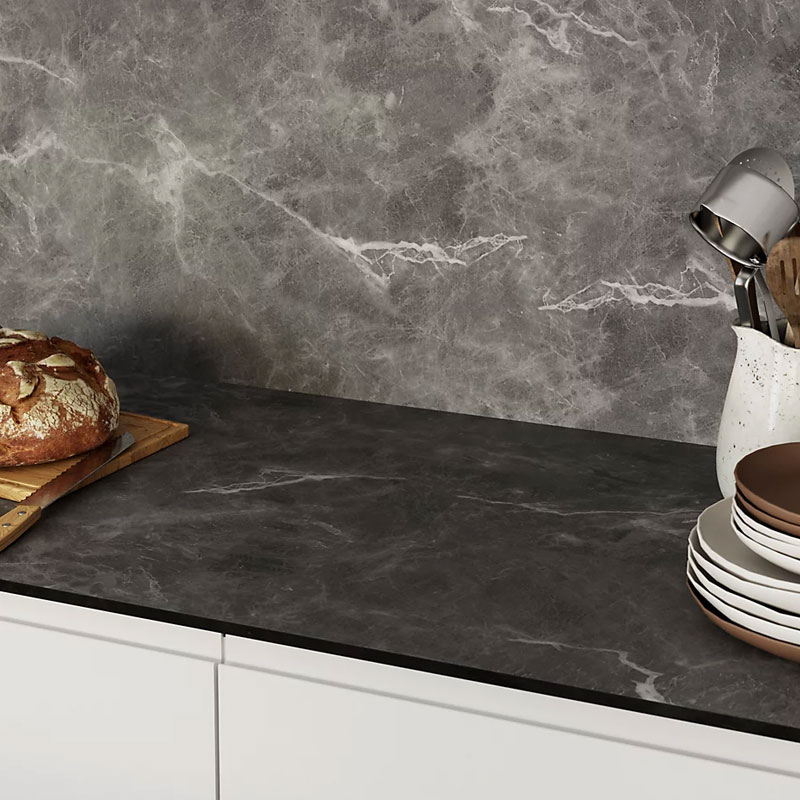
Resistant to heat, stains, scratching and water this paper and resin worktop has a square edge and a Soapstone effect.

Steve Larkin is the co-founder and CEO of Kitchen Door Hub with years of experience in kitchen design, carpentry and fitting. Kitchen Door Hub are passionate about helping homeowners craft their dream spaces and are with them for every step of their renovation journey.

Paul is the managing director of County Stone Ltd., a family-run, modern stone masonry company that works with private and commercial clients locally and nationally.
Dealing with the disadvantages
While there are some disadvantages to Corian, deciding if it's right for you will come down to a number of different elements regarding your kitchen design, how you use your kitchen and your budget.
Plus, when armed with the correct knowledge, some of the issues you can face with Corian can be avoided, and dealt with relatively easily.
“While Corian is tough and is prone to scratching more easily than stone," agrees Paul Dore, "you can prolong its life with gentle use and making sure to use chopping boards."
This Joseph Joseph Duo Chopping Board Set from Argos is one I have in my own home and is perfect for protecting worktops of any kind.
And, despite the fact they can get damaged, “Corian worktops are relatively low maintenance day to day,” continues Paul. “As a non-porous and man-made material, a regular wipe with mild soap and water is enough to keep the surface clean.” It is, however, recommended not to use strong chemicals such as oven cleaners.
Dealing with repairs might also not be as tricky as you think. To get rid of surface scratches it is recommended to use a fine sandpaper grade. Start with a 240 grit sandpaper to gently get rid of the scratch and finish by washing with a super fine 400 grit sandpaper.
FAQ
How long do Corian worktops last?
Like most things if you look after it and maintain it it will last a lot longer and a Corian worktop is no different. How often it is used will have a bearing on its longevity.
That said, Corian is not as long lasting as other types of worktops says Paul Dore, “It's nowhere near as hard-wearing as stone, so unlike granite and quartz, homeowners may find they need to replace it every 10 years or so.”
Budget will naturally be a factor in your final decision, so find out what you can expect to pay on average for kitchen worktop prices, and if your budget will stretch further, see if a marble worktop could be an indulgence worth investing in.
Steve Jenkins is a freelance content creator with over two decades of experience working in digital and print and was previously the DIY content editor for Homebuilding & Renovating.
He is a keen DIYer with over 20 years of experience in transforming and renovating the many homes he has lived in. He specialises in painting and decorating, but has a wide range of skills gleaned from working in the building trade for around 10 years and spending time at night school learning how to plaster and plumb.
He has fitted kitchens, tiled bathrooms and kitchens, laid many floors, built partition walls, plastered walls, plumbed in bathrooms, worked on loft conversions and much more. And when he's not sure how to tackle a DIY project he has a wide network of friends – including plumbers, gas engineers, tilers, carpenters, painters and decorators, electricians and builders – in the trade to call upon.
- Sarah HarleyAssistant Editor

